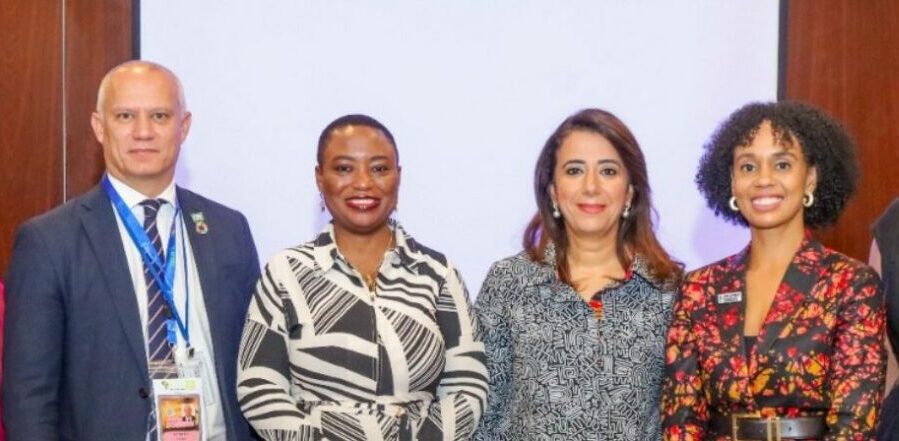Date Published: September 11, 2023.
On the sidelines of the African Climate Summit, Development Reimagined hosted an event aimed at challenging the status quo embedded within the international debt system.
African countries operate in a creditor-centric international financial system where the “rules of the game” have not been designed with low or low-middle-income countries in mind. In particular, the Debt Sustainability Analysis (DSA) by the IMF and World Bank only monitor low-income countries, resulting in an inherent bias. This reinforces a narrative that views African countries as ‘risky’ destinations, resulting in an ‘African risk premium.’ Further, Africa’s debt only accounts for 1.16% of global external debt, highlighting the misleading narratives that the continent is heavily indebted and placing a significant debt burden on the rest of the world. Moreover, this biased DSF does not account for “positive” debt, which can be spent on growth-producing assets, primarily infrastructure, and can have “spillovers” that create new growth.
To dig deeper into these challenges, Development Reimagined hosted a bespoke event during the African Climate Summit, which looked into questions such as:
- What would a “revised,” homegrown DSA look like for African countries? Is there an appetite for this? How would creditors react to African-produced DSAs?
- Would adopting the DSA make a difference to African countries’ availability of finance or not?
- Should African institutions and countries be producing their own DSAs?
- How can credit rating agencies be reformed to reduce the biased risk perception of the African continent?
We had an excellent lineup of speakers and panellists. The session was kicked off with an illuminating keynote speech by Ms Oluranti Doherty, the Director of Export Development for Afreximbank. The panel discussion was moderated by Ms Hannah Ryder, CEO of Development Reimagined, with panellists;
- Mr John Asafu-Adjaye, Senior Fellow at the African Center for Economic Transformation ACET.
- Ms Faten Aggad, Senior Advisor on Climate Diplomacy at the African Climate Foundation (ACF).
- Dr Hanan Morsy, Deputy Executive Secretary and Chief Economist of the United Nations Economic Commission for Africa.
- Mr Olivier Pognon, the Director and CEO of the African Legal Support Facility.
- Ms Karabo Chadzingwa, Researcher at the African Peer Review Mechanism.
Mr Jean-Paul Adam, the Director of Policy, Monitoring and Advocacy in the Office of the Special Adviser on Africa at the United Nations Secretariat, provided brilliant closing remarks to end the session.
Watch the event below in either English or French.
The event builds on research by Development Reimagined. To find out more, you can read our policy brief “How can the IMF, World Bank and other global financing mechanisms be reimagined to work better for Africa?” which can be found here.
September 2023


